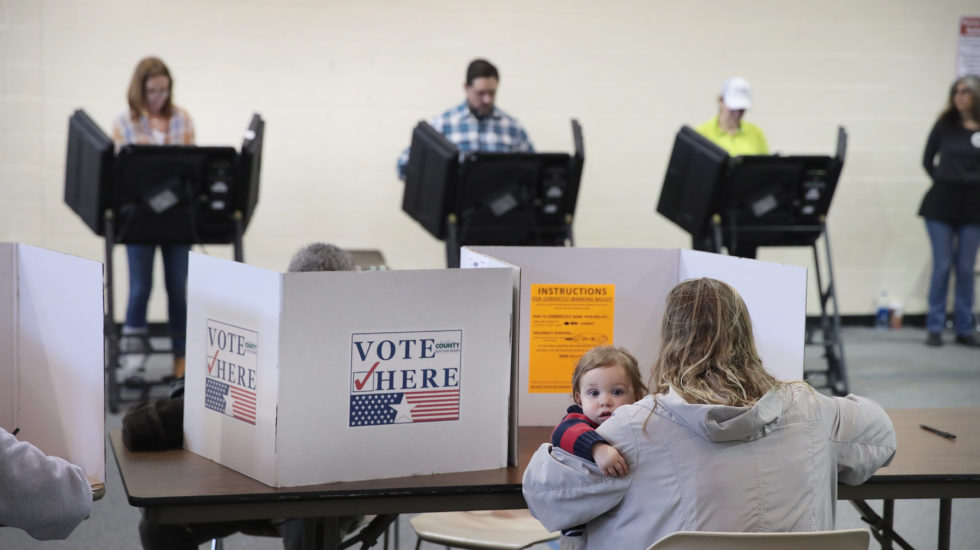Primary elections will be held in three states on Tuesday, but the biggest question voters must face isn’t on the ballot.
It’s worry that simply going to the polls could lead to potentially deadly infection by the Covid-19 coronavirus.
Fear of exposure to the virus is likely to reduce the turnout in Florida, Illinois and Arizona.
Ohio was also supposed to hold its primary, but Gov. Mike DeWine (R) moved to delay it. Since he needs court permission to do so, he planned to file suit to put off in-person voting, following CDC guidelines against gatherings of 50 or more people.
“This should extend the period of time (to vote) so that people will not have to choose between their constitutional rights and their health,” DeWine said.
The Ohio primary is now expected to be held in June.
A total of 577 Democratic National Convention delegates were supposed to be up for grabs in the four states on Tuesday.
Joe Biden had been hoping to lock up the Democratic nomination with a good showing, but the demographics of his base support may hinder that.
As the Washington Post reports, Biden “has had strong support from older voters, who are more at risk to suffer serious health issues if they contract Covid-19.”
The same concern applies to poll workers, many of them retirees. Election officials have scrambled to replace those who’ve said they will not show up on Tuesday.
“While many jurisdictions have emergency plans in cases of natural disasters or power grid failures, there has been little planning for a health pandemic that could keep the public quarantined inside their homes,” experts told the Post.
“I don’t think we’ve really considered a scenario like this. I haven’t seen anything on this scope and scale,” said Jennifer Morrell, a former election official in Utah and Colorado and partner with the consulting firm Elections Group.
Along with the likelihood of low turnouts, there is an opposite threat: long lines at under-staffed polling places, which — even combined with “social distancing” — would increase the chance of virus exposure.
Tuesday’s biggest prize for the two remaining Democratic candidates — Biden and Sen. Bernie Sanders (D-VT) — is Florida, a perennial battleground state and one with a huge bloc of Latino voters. Florida will send 219 delegates to the nominating convention. Arizona, also heavily Latino, will send 67.
“Biden is playing catch-up when it comes to engaging Latino voters and is weighed down by anger over the high rate of deportations during the Obama administration, which left scars for many immigrants and their families,” says the Associated Press. The Obama administration deported more than 3 million people between 2009 and 2017.
In contrast, Sanders has enjoyed strong Latino support, particularly in western states where President Trump’s “stop ‘em at the border” and deportation policies are widely loathed.
“You cannot depend on people’s hatred or fear of Trump to inspire them to turn out in droves for Vice President Biden,” said Tomás Robles of LUCHA, an Arizona Latino group that has endorsed Sanders. “Bernie has worked hard to motivate Latinos as a base.”
However hard he’s worked, Sanders may be losing some of his Latino advantage, particularly in Florida, where his past praise of certain actions by Cuba’s socialist dictator Fidel Castro has riled Cuban émigrés.
Still, the big issue is fear of the virus.
Catherine Turcer, executive director of Common Cause Ohio, told the Post that the public’s fears could “overtake their desire to vote” — though she encouraged people who feel comfortable to turn out.
“We’re asking people to go into pretty confined conditions, and even with all sorts of wipes and the things that can be done to make things safe, it is anxiety-provoking,” she said.
UPDATE: A judge in Ohio has denied a request to delay the primary, citing the late hour of the request.



